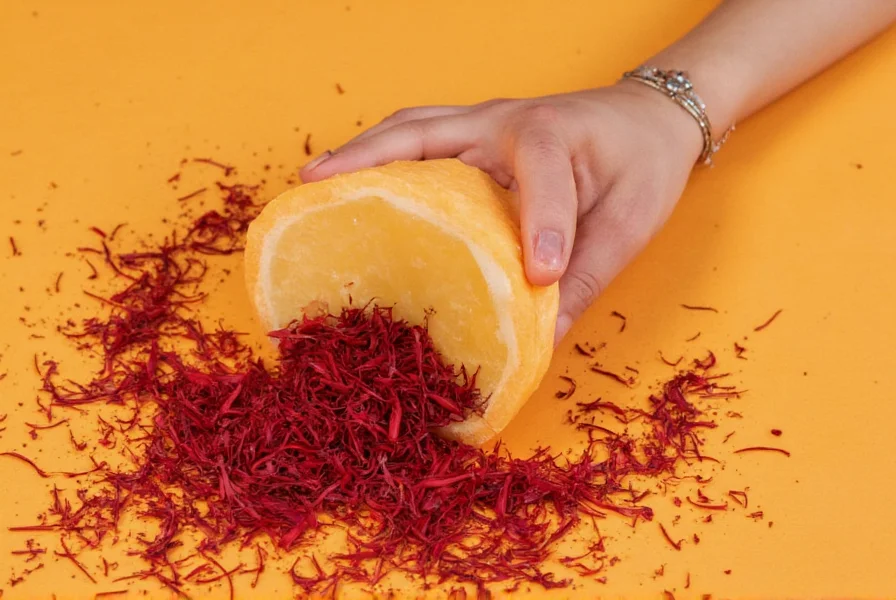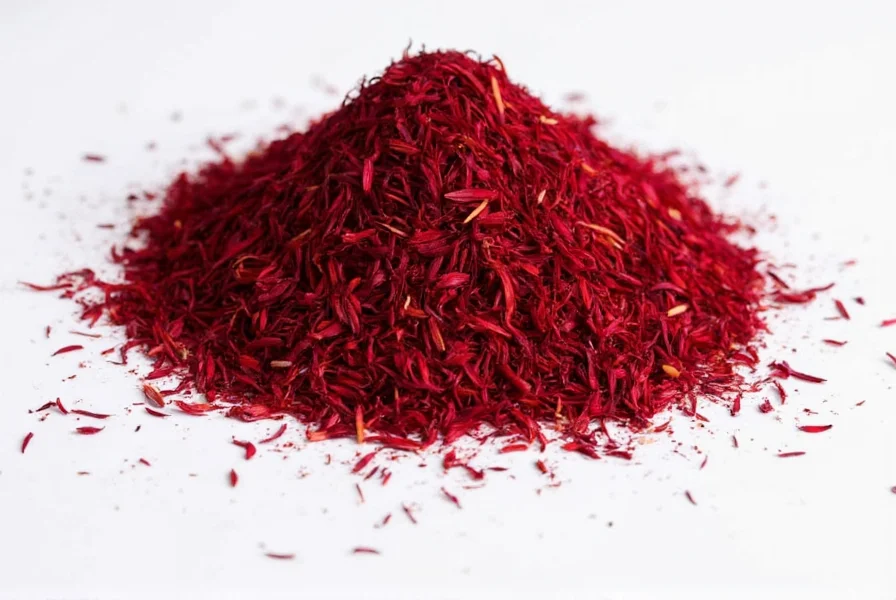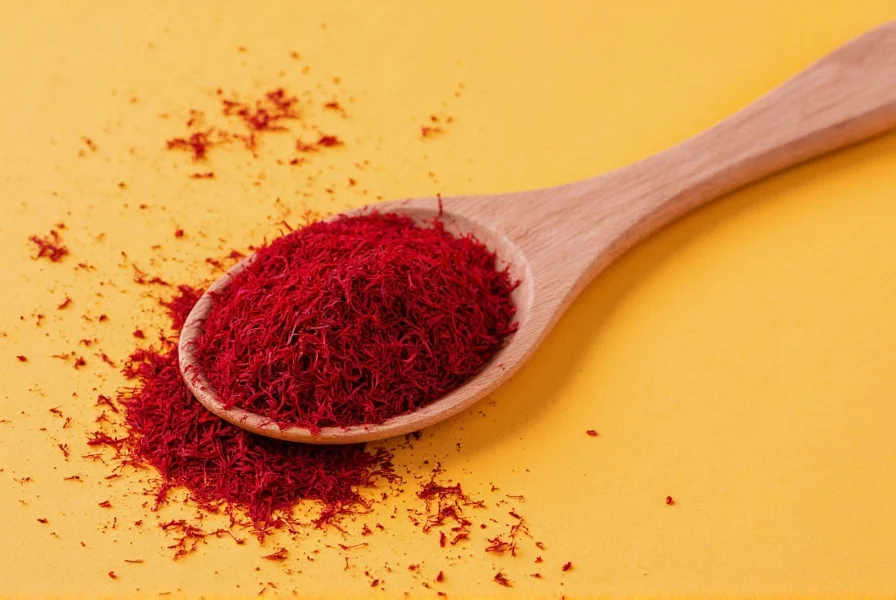As researchers continue exploring natural alternatives for attention deficit hyperactivity disorder management, saffron has emerged as a potential complementary option. This expensive spice, derived from Crocus sativus flower stigmas, contains bioactive compounds like crocin and safranal that may influence neurotransmitter systems relevant to ADHD.
The Science Behind Saffron and Brain Function
Saffron's potential cognitive benefits stem from multiple mechanisms. The compound crocin demonstrates antioxidant properties that may protect neural tissue, while safranal appears to modulate serotonin, dopamine, and norepinephrine systems—neurotransmitters frequently implicated in ADHD pathophysiology. Unlike conventional stimulant medications that primarily target dopamine reuptake, saffron's multi-pathway approach offers a different physiological profile.
Clinical Evidence for Saffron in ADHD Treatment
Several clinical trials have investigated saffron's effects on ADHD symptoms:
| Study | Participants | Duration | Key Findings |
|---|---|---|---|
| Hebrani et al. (2018) | 54 children (6-17 years) | 6 weeks | Saffron (50mg/day) showed similar symptom reduction to methylphenidate with fewer appetite-related side effects |
| Akhondzadeh et al. (2020) | 86 children | 8 weeks | Combination of saffron and conventional treatment demonstrated enhanced efficacy compared to medication alone |
| Dalvi et al. (2022) | 32 adults | 12 weeks | Modest improvement in attention metrics but no significant change in hyperactivity scores |
These studies suggest saffron may be particularly beneficial for children with ADHD, though adult research remains limited. The most promising results appear in pediatric populations, with effect sizes comparable to low-dose stimulant medications.

How Saffron Compares to Conventional ADHD Treatments
When considering saffron for ADHD symptom management, several factors differentiate it from standard treatments:
- Onset of action: Conventional stimulants typically work within hours, while saffron may require 4-6 weeks to show effects
- Side effect profile: Saffron demonstrates fewer appetite suppression and sleep disturbance issues than stimulants
- Mechanism: Stimulants primarily target dopamine reuptake, while saffron influences multiple neurotransmitter systems
- Regulation: Pharmaceutical ADHD medications undergo rigorous FDA testing, while saffron supplements have less standardized quality control
Research on saffron for attention deficit hyperactivity disorder in children suggests it may serve as a complementary approach rather than a replacement for evidence-based treatments. The natural compound appears most effective when integrated into a comprehensive treatment plan that may include behavioral therapy and, when necessary, conventional medications.
Safety Considerations and Potential Side Effects
Saffron demonstrates a favorable safety profile at therapeutic doses (typically 20-50mg of standardized extract daily), though some considerations exist:
- Doses exceeding 1.5g daily may cause serious side effects including dizziness and nausea
- May interact with antidepressants (particularly SSRIs) due to serotonergic effects
- Pregnant women should avoid therapeutic doses as saffron may stimulate uterine contractions
- Quality varies significantly among saffron supplements due to lack of standardization

Practical Considerations for Those Exploring Saffron for ADHD
For individuals considering saffron as part of their ADHD management strategy, several practical factors deserve attention:
- Look for standardized extracts containing 3-5% crocin and 2-3% safranal for consistent potency
- Allow 4-6 weeks to assess potential benefits, as effects are not immediate
- Consult with a healthcare provider before combining with other ADHD medications
- Track symptoms systematically using validated ADHD rating scales to objectively measure effects
- Be aware that high-quality saffron supplements can be expensive due to the labor-intensive harvesting process
Research on saffron extract for ADHD symptom reduction remains in early stages, with most studies conducted in Iran where saffron is more readily available. Larger, multi-center trials with diverse populations would strengthen the evidence base. Current findings suggest saffron may offer a valuable complementary option, particularly for those experiencing significant side effects from conventional medications or seeking natural approaches as part of a comprehensive treatment plan.
When to Consult a Healthcare Professional
Before incorporating saffron into an ADHD management regimen, consult with a qualified healthcare provider, especially if:
- You're currently taking ADHD medications or antidepressants
- You have bipolar disorder (saffron may potentially trigger mania)
- You're pregnant or breastfeeding
- You're considering saffron as a replacement rather than complement to existing treatment
Healthcare providers can help monitor symptom changes, potential interactions, and ensure that saffron use aligns with overall treatment goals. They can also help distinguish between evidence-based approaches and unsubstantiated claims about saffron for ADHD in children and adults.
Conclusion
While preliminary research on saffron for ADHD shows promise, particularly for pediatric populations, the evidence remains limited compared to conventional treatments. The natural compound appears to offer a favorable side effect profile and may serve as a valuable complementary approach within a comprehensive ADHD management strategy. However, more rigorous, large-scale studies are needed to establish optimal dosing protocols, long-term safety, and efficacy across diverse populations. Individuals interested in exploring saffron as part of their ADHD treatment should do so under medical supervision and as part of a holistic approach that may include behavioral interventions and, when appropriate, conventional medications.
Frequently Asked Questions
Does saffron really help with ADHD symptoms?
Current research indicates saffron extract may provide modest benefits for ADHD symptoms, particularly in children. Multiple studies have shown saffron (typically 20-50mg of standardized extract daily) demonstrates comparable efficacy to low-dose methylphenidate for reducing inattention symptoms, with fewer reported side effects like appetite suppression. However, these findings come from relatively small studies, and saffron should not replace conventional ADHD treatments without medical supervision.
How long does it take for saffron to work for ADHD?
Unlike conventional stimulant medications that work within hours, saffron typically requires 4-6 weeks of consistent daily use before potential benefits for ADHD symptoms become noticeable. This delayed onset reflects saffron's mechanism of action, which involves gradual modulation of multiple neurotransmitter systems rather than immediate dopamine reuptake inhibition. Clinical trials assessing saffron for ADHD in children generally measured outcomes after 6-8 weeks of treatment.
What's the recommended saffron dosage for ADHD management?
Research on saffron dosage for ADHD has primarily used standardized extracts providing 20-50mg daily. Most clinical trials for children with ADHD have utilized 20-30mg of saffron extract twice daily (total 40-60mg), containing approximately 3-5% crocin. It's crucial to select products with standardized active compounds, as saffron quality varies significantly. Always consult with a healthcare provider before starting saffron supplementation, especially if taking other medications for ADHD.
Can saffron replace ADHD medication?
No, saffron should not be used as a replacement for prescribed ADHD medications without medical supervision. While research on saffron for ADHD symptom reduction shows promise as a complementary approach, the evidence base is significantly smaller than for conventional treatments. Some studies suggest saffron may work best as part of a comprehensive treatment plan that could include behavioral therapy and, when necessary, conventional medications. Abruptly stopping prescribed ADHD medication in favor of saffron could lead to symptom worsening.
Are there any risks associated with using saffron for ADHD?
Saffron is generally well-tolerated at therapeutic doses (20-50mg of standardized extract daily), but potential risks include interactions with antidepressants (particularly SSRIs) due to serotonergic effects, and possible triggering of mania in individuals with bipolar disorder. High doses (above 1.5g daily) may cause serious side effects including dizziness, nausea, and in extreme cases, more severe reactions. Quality control issues with saffron supplements also present risks, as some products may contain fillers or inconsistent active compound levels. Always consult a healthcare provider before using saffron for ADHD management.











 浙公网安备
33010002000092号
浙公网安备
33010002000092号 浙B2-20120091-4
浙B2-20120091-4